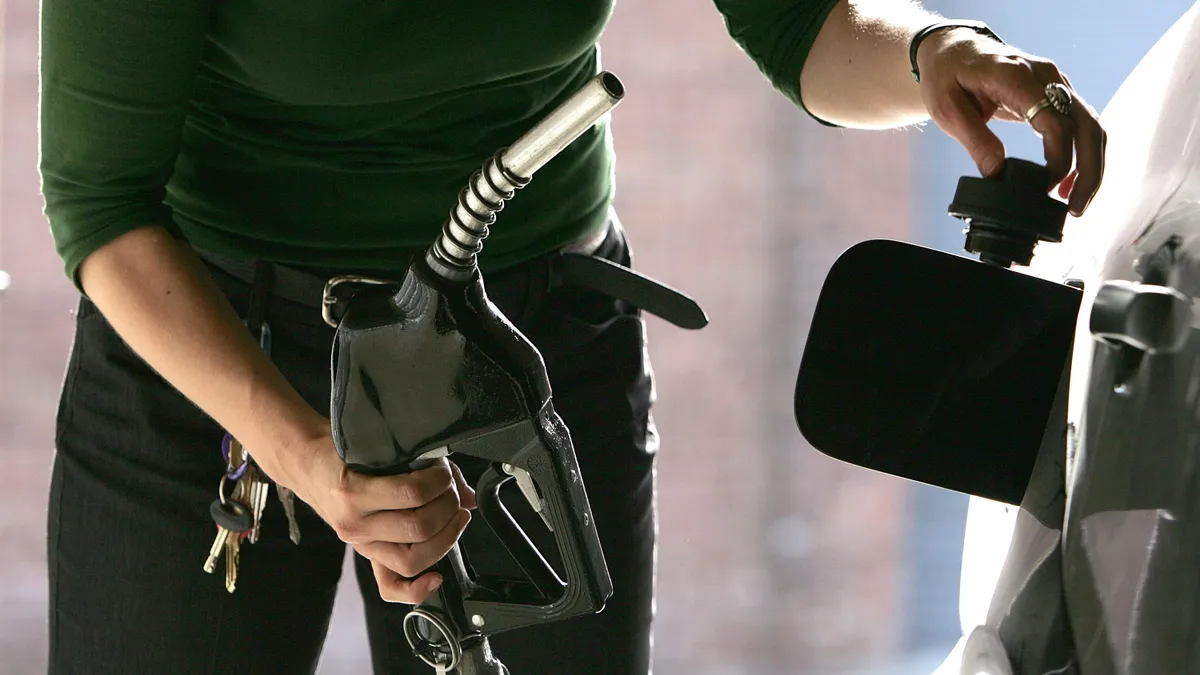Dive Brief:
- Roberto Simon, a 25-year veteran of French bank Société Générale, moved to the top financial seat for eFuels company HIF Global, the company announced in a press release. Simon started the role Aug. 8, he confirmed in an email.
- eFuels or biofuels utilize renewable sources to produce environmentally-friendly alternatives to fossil fuels. The company is working to create a pilot eFuels plant that uses wind power to create green hydrogen, which is then mixed with carbon dioxide to create green methanol, per an April 6 report in Reuters detailing the close of a $250 million funding round for the company.
- HIF also detailed plans to deploy approximately $50 billion in capital with the goal of constructing and operating facilities for the production of eFuels, it said in its Wednesday release.
Dive Insight:
Prior to joining eFuels, Simon served since December 2020 as managing director and co-head of global banking advisory for Société Générale in New York. Before moving into that position, Simon acted as Head of Natural Resources & Infrastructure for the Americas at the French bank. He also previously served as their managing director, head of project and energy finance.
HIF, which stands for “Highly Innovative Fuels,” is working to develop projects which can convert hydrogen into carbon neutral liquid eFuels, via the use of low-cost renewable power such as wind power. “eFuels are chemically identical to gasoline, shipping fuel, and jet fuel and therefore can be used by existing cars, ships, and airplanes without any modifications to the engines,” Simon wrote.
The company secured $260 million in equity investments in an April funding round, with investors including German car manufacturer Porsche AG, Chilean energy company Andes Mining & Energy (AME) and Baker Hughes. The company cited plans to apply the capital to the development of carbon-neutral eFuels projects in Australia, Chile and the U.S. upon the close of the round. AME is the company’s majority shareholder, with Porsche funneling $75 million into the firm.
Simon “brings extensive expertise from across the entire energy value chain” that will help make its expansion plans a reality, the company wrote in its Wednesday release.
The company is expected to build 12 facilities, Simon wrote in an email, including six in Chile, three in Australia and three in the U.S. The facilities will produce approximately 150,000 barrels per day of eFuels once completed, according to the company, enough to “decarbonize” approximately 5 million cars on the road today.
“Capital markets are eager to fund decarbonization infrastructure. We intend to project finance our construction costs, with a combination of bank debt and equity,” Simon wrote of the project in an email.
eFuels or biofuels could potentially help cars, planes or other such vehicles cut down on their carbon emissions, but they are jostling for space alongside other environmentally conscious alternatives such as electric vehicles (EVs).
Demand for both bio-gasoline and bio-diesel is expected to grow in the short-term, but is likely to peak by about 2030, July 5 data from BloombergNEF showed. Biofuels made up 4.9% of total road fuel use in 2021, with Bloomberg postulating that under its Economic Transition Plan, their use would peak at about 5.2% of the mix in 2031.














